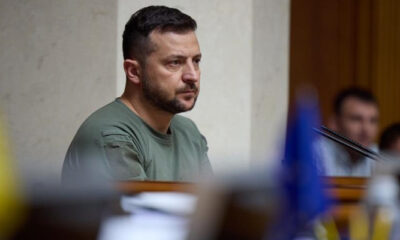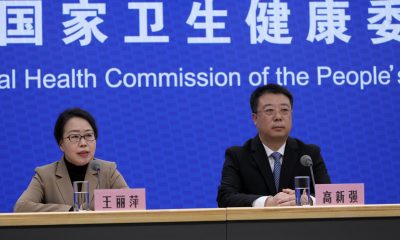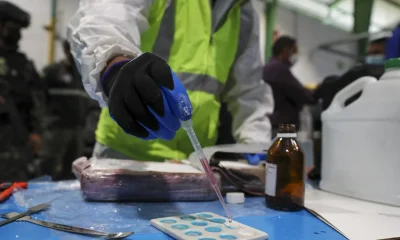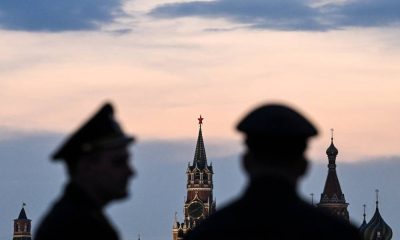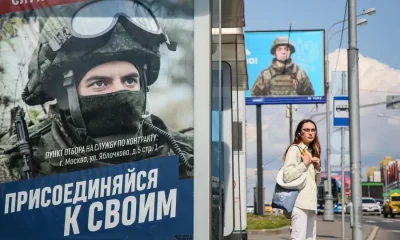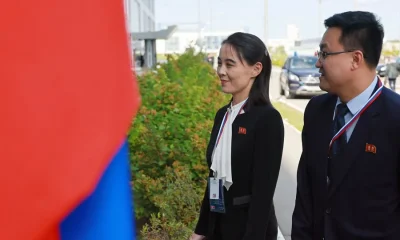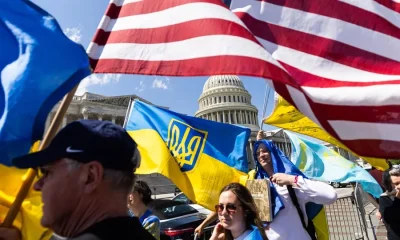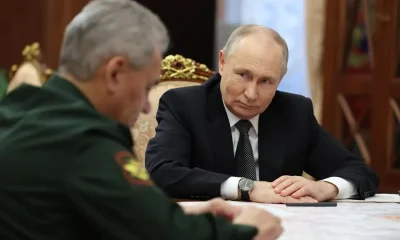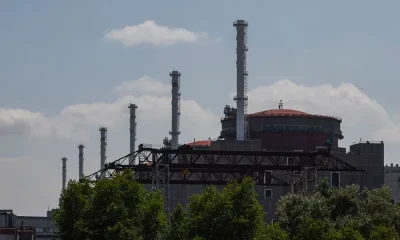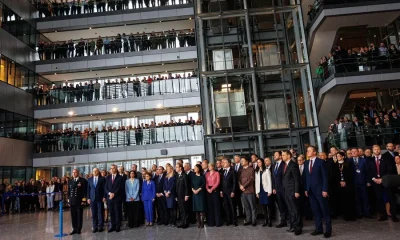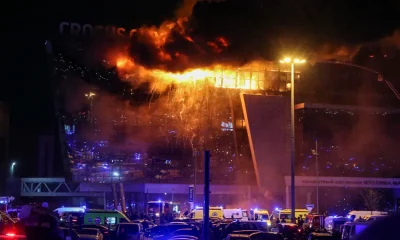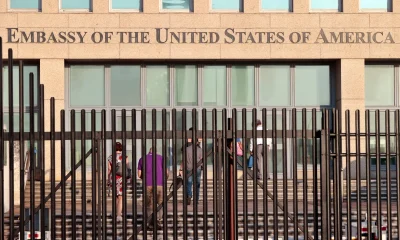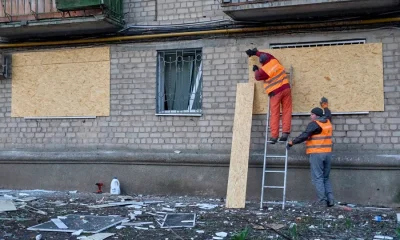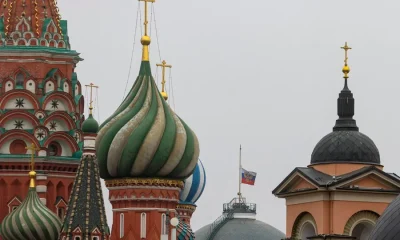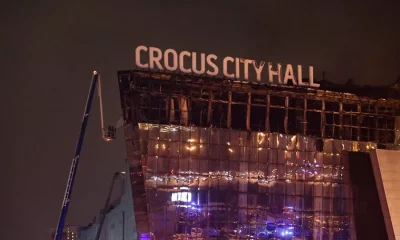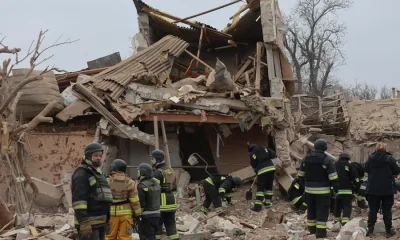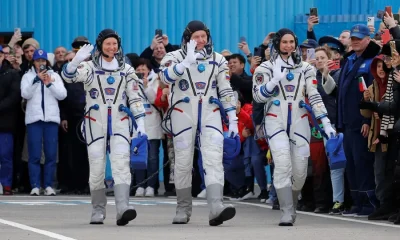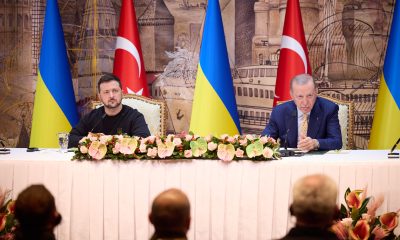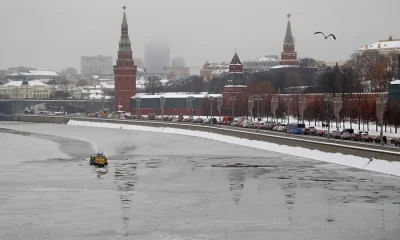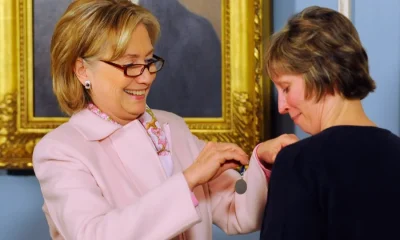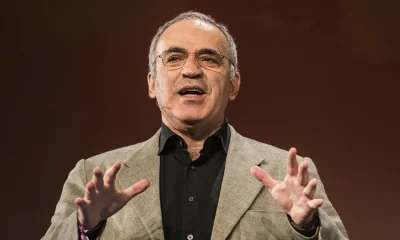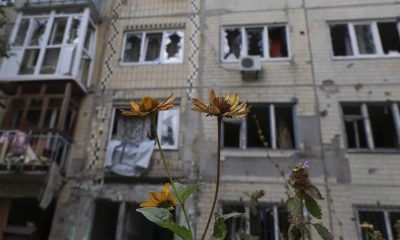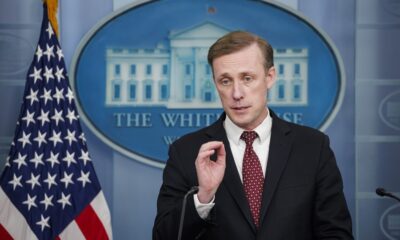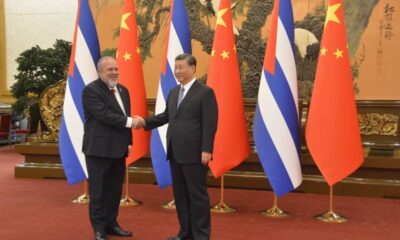International
Russia and China veto the first resolution in which the US called for a ceasefire in Gaza
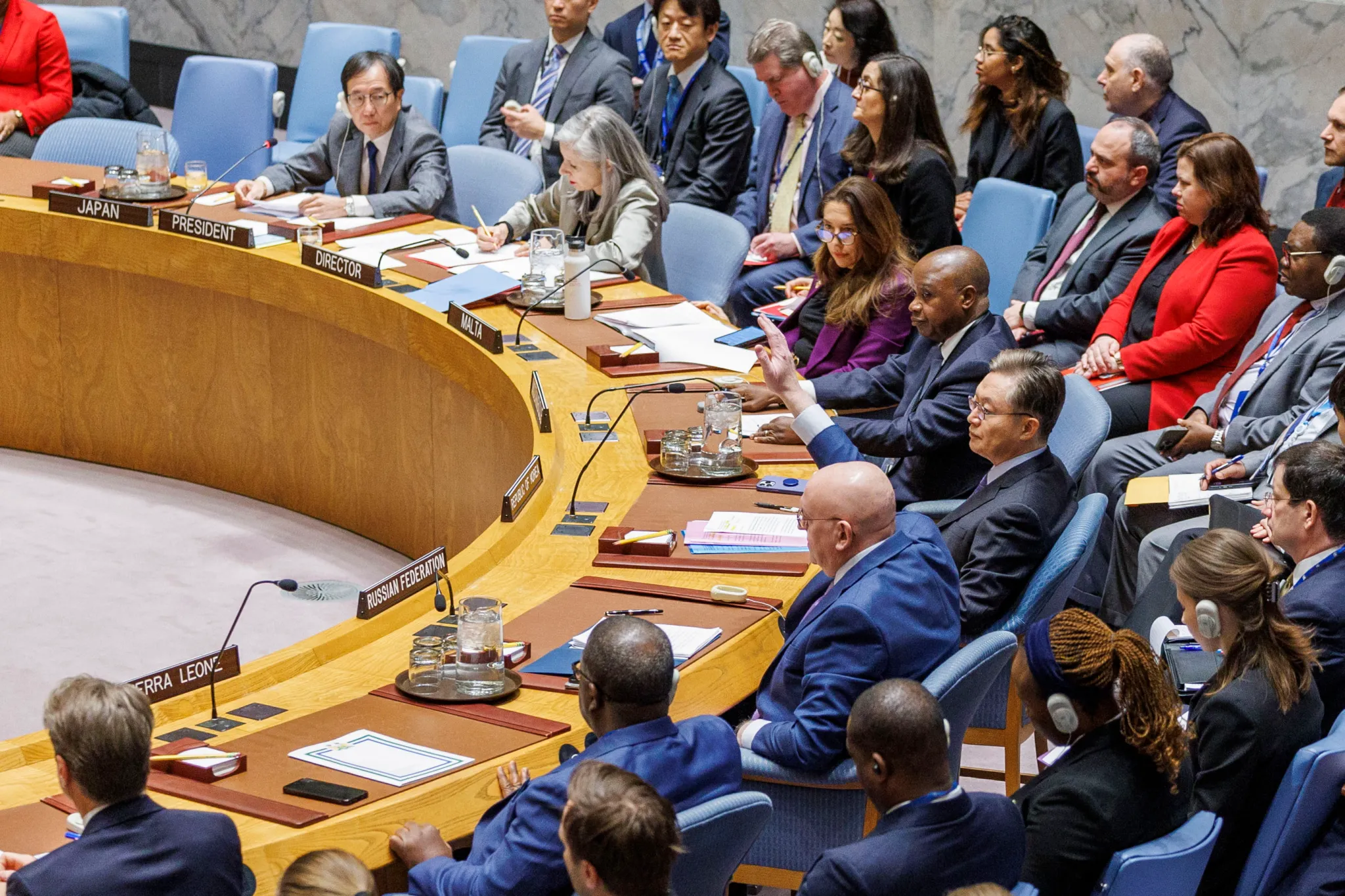
Russia and China vetoed this Friday the first UN Security Council resolution in which the United States called for an immediate ceasefire in Gaza, after almost six months of war that has cost the lives of 32,000 people.
The resolution was also rejected by Algeria, while Guyana abstained and the other eleven countries voted in favor.
Nine votes in favor are enough to approve a resolution, but the negative votes of two countries with the right to veto (in this case Russia and China) prevented its approval.
It is the fourth time that a Member State has vetoed a resolution in this regard. On the previous three occasions the United States did so, arguing in those cases that Israel’s right to defend itself was not included and they actually allowed the rearmament and reorganization of Hamas.
The resolution rejected today, which had been negotiated for a month and required at least six drafts, was rejected for its ambiguous vocabulary, because, in the words of the Russian ambassador, Vasily Nebenzia, prior to the vote, he considered that it did not clearly call for a ceasefire, but was limited to considering “an immediate and sustained ceasefire imperative to protect the civilians of both sides.”
Nebenzia said that the resolution presented by the United States. The United States was “a hypocritical initiative designed to disorient the international community,” he regretted that Russian proposals to amend the text have been systematically rejected by Washginton and also considered that the text voted today “in fact assumes the green light for Israel to carry out a military operation in Rafah.”
As for Algeria’s ambassador, Amar Bendjama, he said that his rejection not only represented his country, but “the entire Arab world,” and stated that the text of the U.S. resolution. The United States on Gaza “does not convey a clear message of peace, but tacitly allows civilian victims to continue (falling) and lacks safeguards for a future escalation” of the conflict.
The Chinese ambassador, Zhang Jun, also considered the text voted today “ambiguous”, because “it does not clearly call for a ceasefire” and because it “deviates from the consensus of the members of the Council and is far from the expectations of the international community,” in addition to setting conditions for that ceasefire.
At this time, another resolution is being negotiated at the same time in the Security Council with a clearer language on the ceasefire, and while Russia and China have said that it will support that other resolution, it remains to be seen what the attitude of the United States will be, which could veto it.
At the same time, the United States sponsors other indirect negotiations in Doha (Qatar) between Hamas and Israel with a view to an exchange of prisoners between the two parties and an eventual truce.
Also yesterday, the European Union called for an “immediate humanitarian break” that “leads to a sustainable ceasefire,” the first common position in this regard in the European club, where Israel has solid allies such as Germany or the Netherlands.
All this political and diplomatic activity has intensified after a dramatic UN report was announced on Monday that assured that 1.1 million people in Gaza are about to enter “catastrophic food insecurity,” the most serious degree of famine.
International
U.S. Senate Rejects Budget, Bringing Government Closer to Shutdown Amid DHS Dispute

The U.S. Senate voted on Thursday against a budget proposal in a move aimed at pressuring changes at the Department of Homeland Security (DHS), following the killing of two civilians during a deployment of immigration agents in Minneapolis.
All Senate Democrats and seven Republican lawmakers voted against the bill, which requires 60 votes to advance, pushing the country closer to a partial government shutdown that would cut funding for several agencies, including the Pentagon and the Department of Health.
The rejection came as Senate leaders and the White House continue negotiations on a separate funding package for DHS that would allow reforms to the agency. Proposed measures include banning Immigration and Customs Enforcement (ICE) agents from wearing face coverings and requiring them to use body-worn cameras during operations.
The vote took place just hours after President Donald Trump said he was “close” to reaching an agreement with Democrats and did not believe the federal government would face another shutdown, following last year’s record stoppage.
“I don’t think the Democrats want a shutdown either, so we’ll work in a bipartisan way to avoid it. Hopefully, there will be no government shutdown. We’re working on that right now,” Trump said during a Cabinet meeting at the White House.
International
Trump Says Putin Agreed to One-Week Halt in Attacks on Ukraine Amid Extreme Cold

U.S. President Donald Trump said on Thursday that he secured a commitment from Russian President Vladimir Putinto halt attacks against Ukraine for one week, citing extreme weather conditions affecting the region.
“Because of the extreme cold (…) I personally asked Putin not to attack Kyiv or other cities and towns for a week. And he agreed. He was very pleasant,” Trump said during a Cabinet meeting broadcast by the White House.
Trump acknowledged that several advisers had questioned the decision to make the call.
“A lot of people told me not to waste the call because they wouldn’t agree. And he accepted. And we’re very happy they did, because they don’t need missiles hitting their towns and cities,” the president said.
According to Trump, Ukrainian authorities reacted with surprise to the announcement but welcomed the possibility of a temporary ceasefire.
“It’s extraordinarily cold, record cold (…) They say they’ve never experienced cold like this,” he added.
Ukrainian President Volodymyr Zelensky later commented on the announcement, expressing hope that the agreement would be honored.
International
Storm Kristin Kills Five in Portugal, Leaves Nearly 500,000 Without Power

Storm Kristin, which battered Portugal with heavy rain and strong winds early Wednesday, has left at least five people dead, while nearly half a million residents remained without electricity as of Thursday, according to updated figures from authorities.
The revised death toll was confirmed to AFP by a spokesperson for the National Emergency and Civil Protection Authority (ANPEC). On Wednesday, the agency had reported four fatalities.
Meanwhile, E-Redes, the country’s electricity distribution network operator, said that around 450,000 customers were still without power, particularly in central Portugal.
Emergency services responded to approximately 1,500 incidents between midnight and 8:00 a.m. local time on Wednesday, as the storm caused widespread disruptions.
The Portuguese government described Kristin as an “extreme weather event” that inflicted significant damage across several regions of the country. At the height of the storm, as many as 850,000 households and institutions lost electricity during the early hours of Wednesday.
Several municipalities ordered the closure of schools, many of which remained shut on Thursday due to ongoing adverse conditions.
Ricardo Costa, regional deputy commander of the Leiria Fire Brigade, said residents continue to seek assistance as rainfall persists.
“Even though the rain is not extremely intense, it is causing extensive damage to homes,” he noted.
In Figueira da Foz, a coastal city in central Portugal, strong winds toppled a giant Ferris wheel, underscoring the severity of the storm.
-

 Central America4 days ago
Central America4 days agoGuatemala seizes over a ton of cocaine hidden in flour at Pacific port
-

 International5 days ago
International5 days agoDelcy Rodríguez seeks political agreements after Maduro’s ouster
-

 International4 days ago
International4 days agoHistoric snowstorm paralyzes Toronto after 60 centimeters of snow
-

 Central America3 days ago
Central America3 days agoGuatemala Police Arrest Prison Guard Caught in the Act of Extortion
-

 Central America3 days ago
Central America3 days agoHonduras swears in conservative president Asfura after disputed election
-

 Central America3 days ago
Central America3 days agoBukele leads public trust rankings as UCA survey highlights gains in security
-

 International4 days ago
International4 days agoSpain’s irregular migrant population rises to 840,000, study finds
-

 International5 days ago
International5 days agoFederal immigration agents kill man in Minneapolis, sparking protests and outrage
-

 International2 days ago
International2 days agoFootball Fan Killed in Clashes After Colombian League Match
-

 International3 days ago
International3 days agoWinter Storm Fern Leaves 30 Dead and Over One Million Without Power Across the U.S.
-

 Central America2 days ago
Central America2 days agoGuatemala President Says Starlink Terminal Found Inside Prison
-

 Sin categoría3 days ago
Sin categoría3 days agoEight Killed in Series of Armed Attacks in Ecuador’s Manabí Province
-

 International3 days ago
International3 days agoDoomsday clock moves to 85 seconds before midnight amid rising global risks
-

 International4 days ago
International4 days agoRights group says nearly 6,000 killed in Iran protest crackdown
-

 International2 days ago
International2 days agoMissing Spanish Sailor Rescued After 11 Days Adrift in Mediterranean
-

 International2 days ago
International2 days agoRubio Says U.S. Could Participate in Follow-Up Russia-Ukraine Talks
-

 International3 days ago
International3 days agoSpain approves plan to regularize up to 500,000 migrants in Historic Shift
-

 Sin categoría3 days ago
Sin categoría3 days agoEl Salvador Launches Fourth Year of Ocean Mission to Protect Marine Ecosystems
-

 International4 days ago
International4 days agoVenezuela frees at least 80 political prisoners, NGO says
-

 International4 days ago
International4 days agoEU launches new probe into X over AI-generated fake nude images
-

 International15 hours ago
International15 hours agoU.S. Senate Rejects Budget, Bringing Government Closer to Shutdown Amid DHS Dispute
-

 International4 days ago
International4 days agoSevere winter storm grips U.S., leaves multiple dead as extreme cold persists
-

 International4 days ago
International4 days agoFrance debates ban on social media for children under 15
-

 International15 hours ago
International15 hours agoStorm Kristin Kills Five in Portugal, Leaves Nearly 500,000 Without Power
-

 International15 hours ago
International15 hours agoMan Arrested After Vehicle Crashes Into Jewish Institution in Brooklyn
-

 International15 hours ago
International15 hours agoTrump Says Putin Agreed to One-Week Halt in Attacks on Ukraine Amid Extreme Cold

























